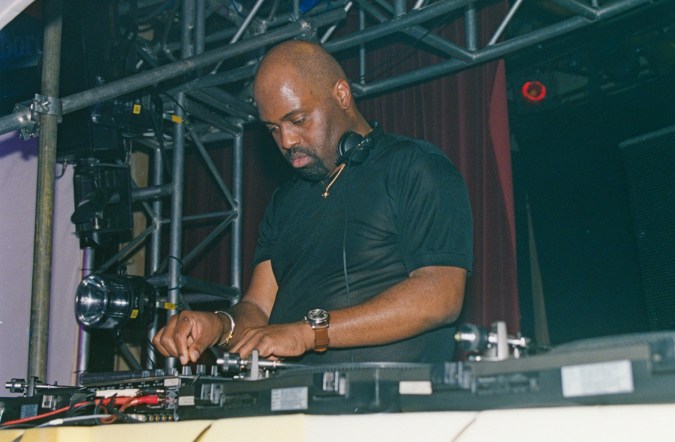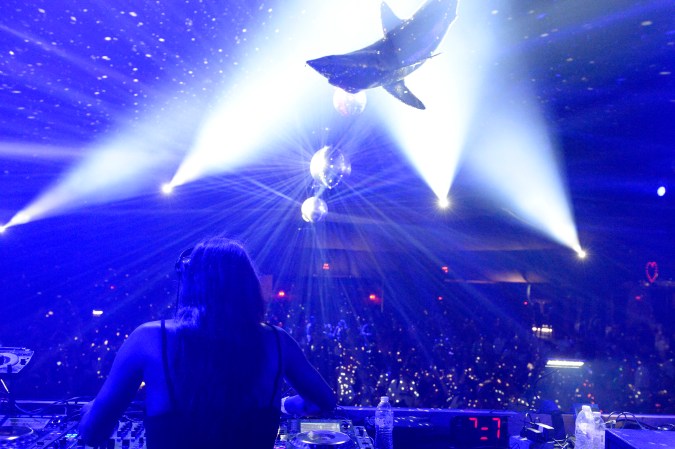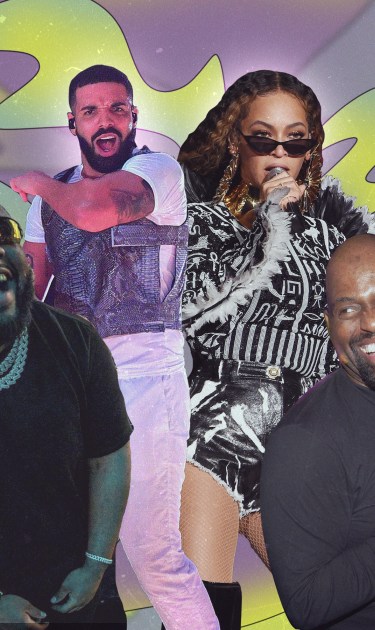When both Drake and Beyoncé teased that they were releasing new music, no one knew what to expect. But once their projects were out in the world — Drake an entire LP ‘Honestly, Nevermind’ and Beyoncé with a single (‘Break My Soul’) off her upcoming album Renaissance — there was a common theme: house. The two artists had ventured into the high-tempo house music genre, a move that quickly received mixed reviews from fans.
The conversations around these music releases centered around the unexpected change — many expressing disappointment over not getting the familiar styles of Drake and Bey in R&B, hip-hop, or pop. This discourse led to other fans defending their dive into house music but in doing so, wrongfully labeling, or gentrifying, it as “music for Ibiza,” those with high credit scores” or “yacht girl summer music.”
These labels would stand as a rebuttal for “those who get it,” but it begs the question: Do we really get it? In giving the music classist and Eurocentric standards, we’re failing to recognize that house music, like most modern music, has its roots in Black and brown culture — originating in communities that have been historically ostracized.
In giving the music classist and Eurocentric standards, you’re failing to recognize that house music, like most modern music, has its roots in Black and brown culture.
Just look at the representation behind these projects: Beyoncé intentionally sampled Robin S.’ “Show Me Love” and included Big Frieda, the queen of Bounce music. She teamed up with longtime collaborators The Dream, Christopher Alan “Tricky” Stewart, and her husband, Jay-Z. Drake leaned on producers/DJ/songwriters Black Coffee and GORDO (formally known as Carnage), who is Nicaraguan-Guatemalan, as well as Vinylz and Tay Keith, for his dance sound.

These collaborations demonstrate that both artists desired to create music rooted in Black culture. This is why labels like “music for Ibiza” are problematic and only fuel the false narrative that only wealthy Eurocentric party-goers enjoy house music.
One must go back to its roots to understand why house music is unapologetically Black and brown. House Music, like most genres, emerged from the underground, specifically the underground of Chicago club culture. Its foundation is a repetitive four on the floor beat with a tempo of 120 beats per minute. House music evolved from Disco music, hence the moniker “Disco’s revenge” given by the late legendary DJ Frankie Knuckles, the Godfather of house music. The term “house” was born from the Chicago club known as The Warehouse, which operated from 1977 to 1983. The Warehouse’s patrons mainly were Black and Latino gay men who came to hear Knuckles, the resident DJ, spin. Knuckles was also an openly gay man. When gay clubs were still being raided, these communities found a haven on The Warehouse floor, where they could be themselves.

The genre quickly spread to cities such as New York and Detroit, a city that had its own techno movement. The three forebears most strongly associated with the birth of Detroit techno: The “Belleville Three” are Juan Atkins, Kevin Saunderson, and Derrick May. The three went to Chicago to listen to house music, to which they took those sounds and mixed them with industrial groups like Kraftwerk to create Techno.
As the music made its way to New York around 1985, it began to take on a more Latin feel. New Yorkers combined Latin freestyle with house music elements, experimenting with the melodic vocal styles of 1970s disco and 1980s dance-pop with synth instrumentation from electro and hip hop.
Latin freestyle would bring us artists like the band Lisa Lisa and Cult Jam. Then, DJ Jesse Velez’s “Girls Out on the Floor” was the first single to combine Latin Freestyle and house. This was followed by Raz’s “Amor Puerto Riqueno,” Jose Cheena’s “Loco Pinga,” among many more. This blending of genres was a natural move given that house music, like disco, incorporates elements of Latin music, mainly percussion, congas, timbales, cowbells, and bongos.
On the dance charts, singers such as Robin S, Crystal Waters, and CeCe Peniston had massive hits. Unfortunately, Martha Wash, dubbed “The Queen of Clubland,” did not have the same opportunities. Her voice has been used on Black Box and C&C Music Factory songs. Models were hired to mimic the lyrics in the videos, and Walsh’s fight against unauthorized use of her voice aided in the passage of legislation requiring vocal credit on CDs and music videos.
Fast forward to the 2000s, and there is an influx of music genres gaining steam in the mainstream U.S.: pop-punk, pop, and hip hop, clashing against house’s momentum. However, house music was still growing in popularity in Europe, and with that, electro and progressive house emerged. Countries such as Sweden pioneered the “Progressive House Genre.” This resulted in an influx of white DJs and producers and more investment within the genre, leading to the dissociation of its Black and brown origins.

While some people claim that house music is seeing a resurgence, in actuality, it’s only gaining a larger audience. Its origins have been there. Its roots have never been lost in the marginalized communities that have known its power, with artists celebrating it in all of its glory like Kaytranada, DJ Lady D, and Honey Dijon. There are also existing festivals produced and curated by people of color, such as the Movement Festival in Detroit, Charivari Detroit, West Coast Weekender, The Chosen Few Picnic, and House in the Park.
Knowing what we know about the genre’s history, shrinking the music to eurocentric or classist labels implies the erasure of Black, Latinx, and LGBTQIA+ people. The beauty of house music is that it never caters to elitists. It’s about a chosen family gathering on the dance floor to uplift and enjoy themselves. Changing the name destroys the freedom and resistance historically entwined in its beats.




